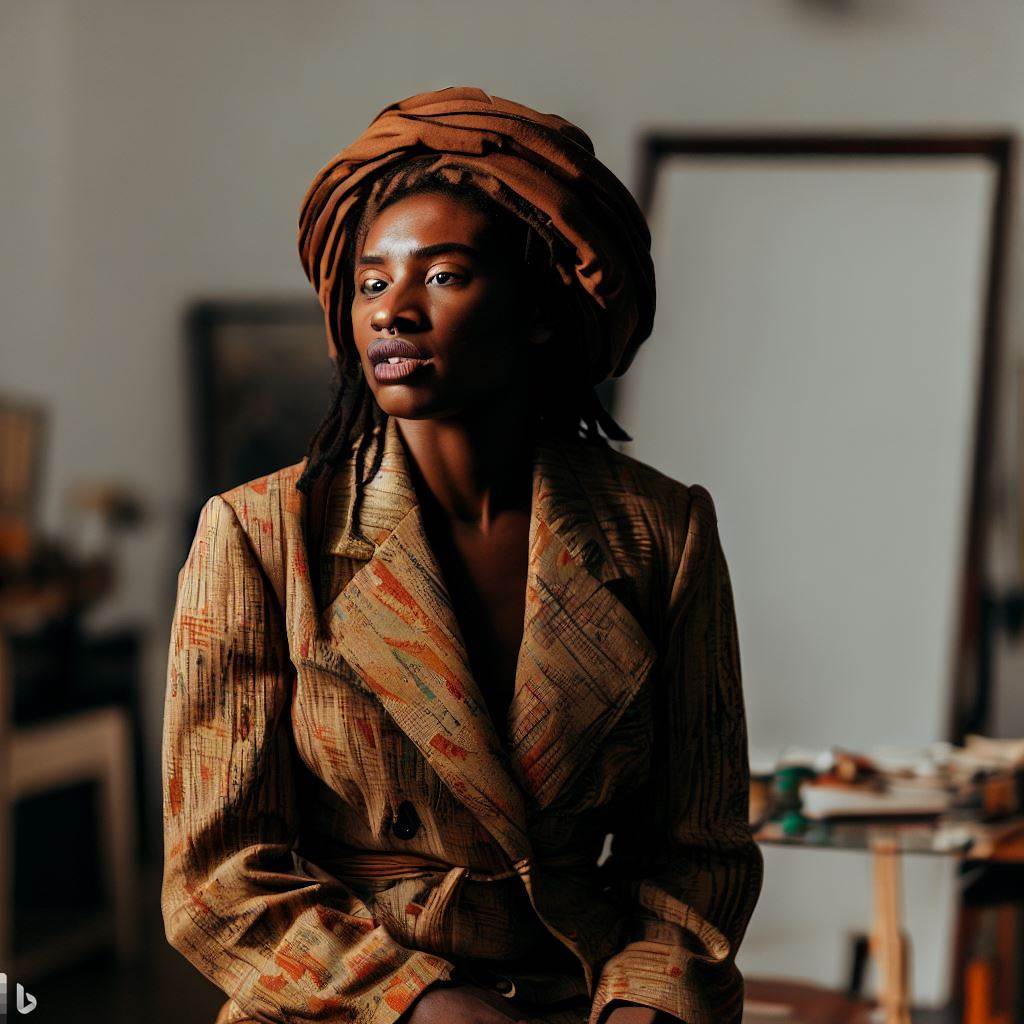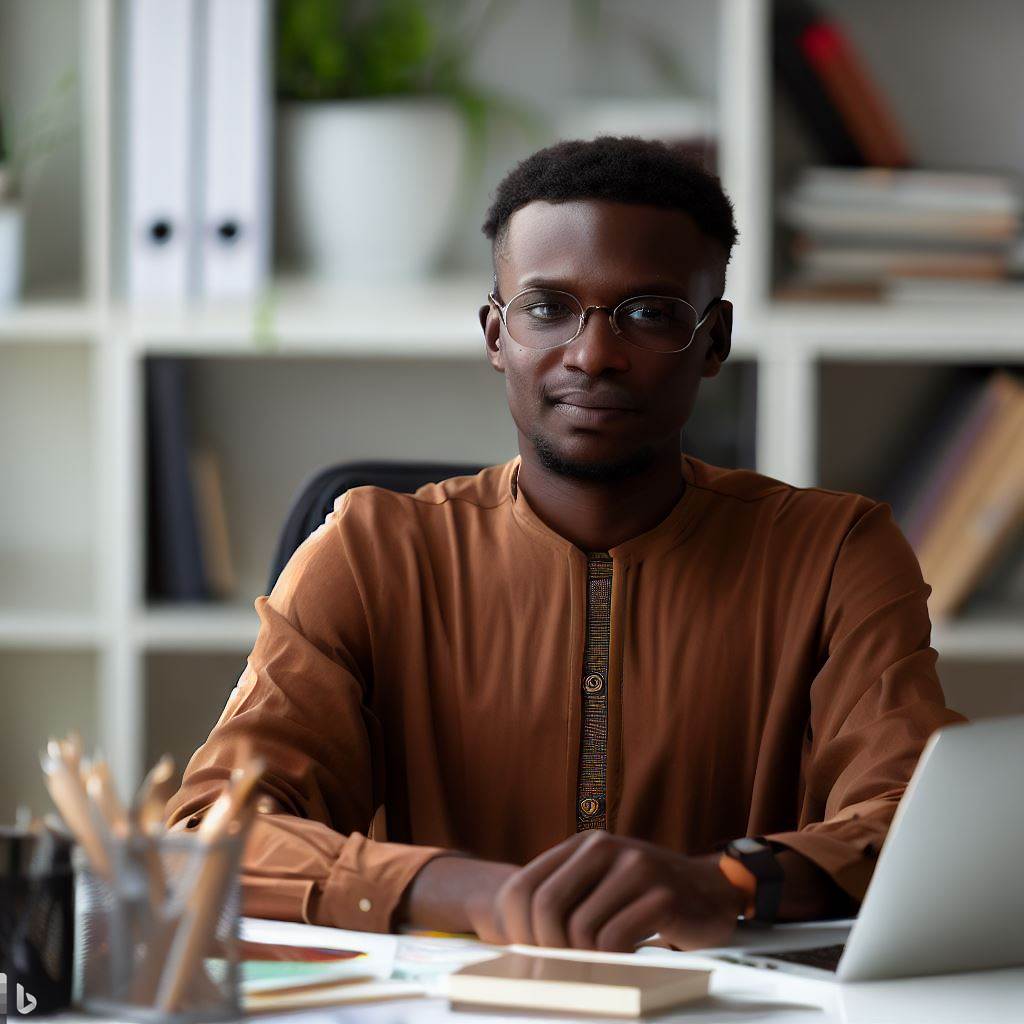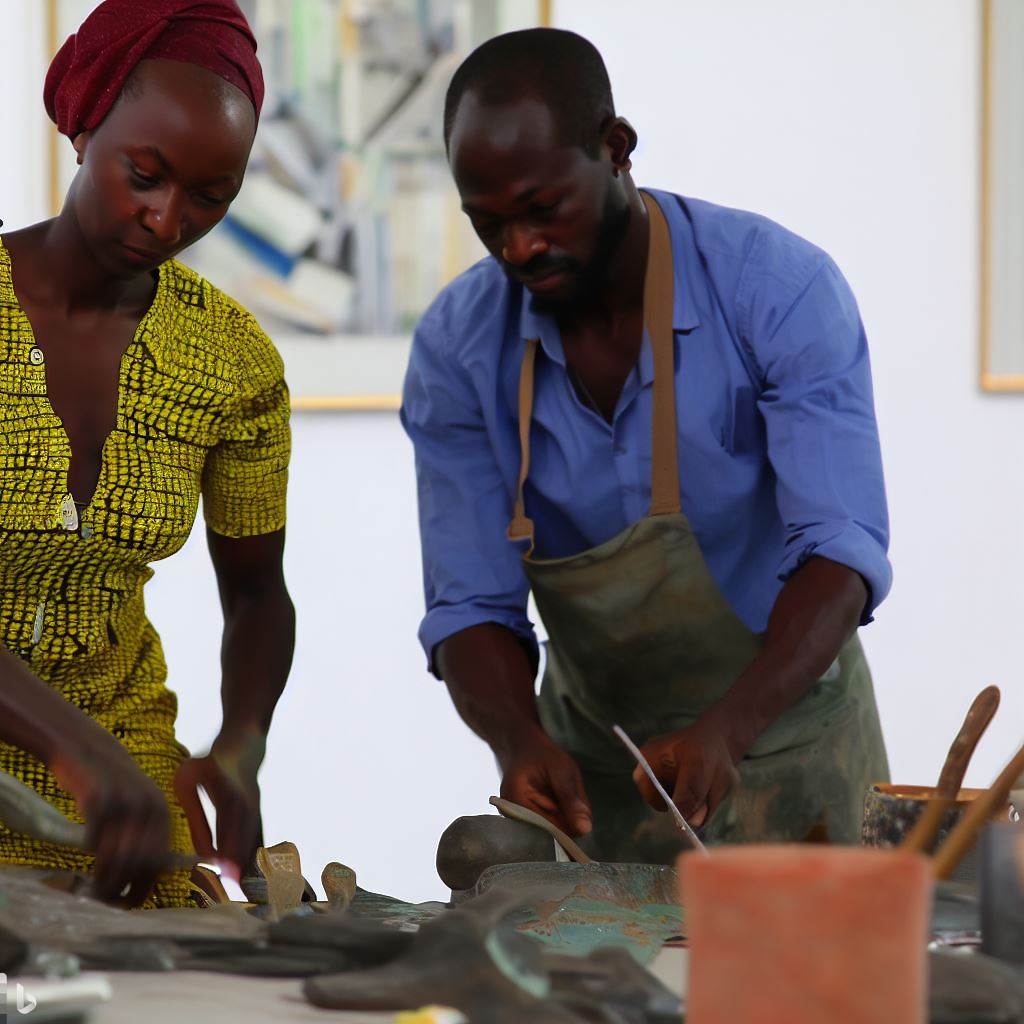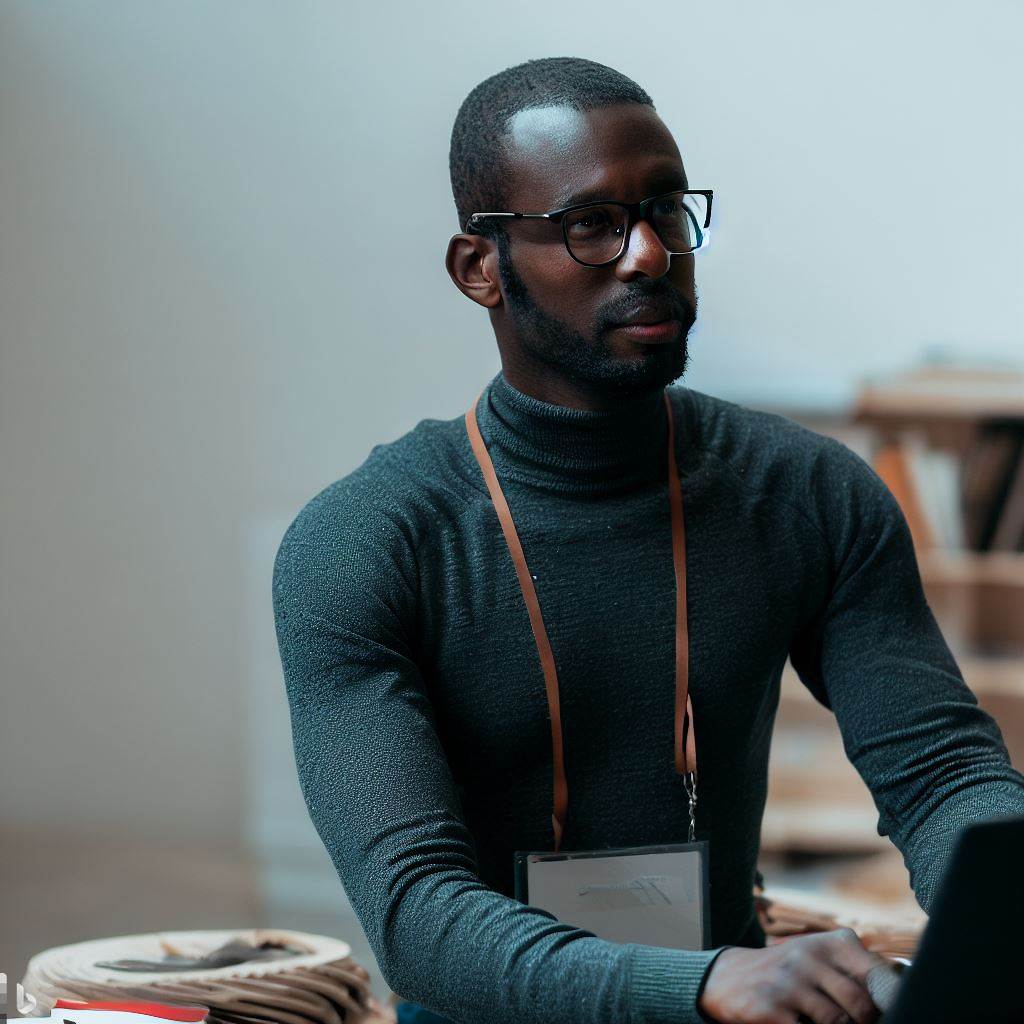Introduction
International curators have played a significant role in shaping and promoting Nigerian art globally.
Their influence has helped put Nigerian artists on the world stage and has contributed to the growth of the country’s art scene.
These curators bring an outsider’s perspective and fresh ideas, inspiring and pushing Nigerian artists to explore new boundaries.
By curating exhibitions and showcasing Nigerian art in international galleries and museums, these curators have given Nigerian artists exposure to a global audience.
They have also facilitated collaborations between Nigerian artists and their international counterparts, fostering cultural exchange and dialogue.
International curators have bestowed global recognition and validation upon Nigerian art, dismantling stereotypes and dispelling misconceptions about African art.
Their expertise and connections in the global art community have provided opportunities for Nigerian artists to exhibit and sell their work internationally.
Furthermore, international curators have introduced new concepts and approaches to the Nigerian art scene, enriching its diversity and pushing it forward.
The influence of international curators in shaping the Nigerian art scene cannot be overstated. With their guidance and support, Nigerian artists have gained exposure, recognition, and opportunities that have propelled their careers to new heights.
Basically, international curators have had a profound impact on the development of Nigerian art, promoting its visibility and connecting it to the global art scene.
Historical Background
The early art scene in Nigeria and its development
The early art scene in Nigeria was vibrant, reflecting the rich cultural heritage of the country.
Artists focused on traditional forms and subjects, illustrating the diversity of Nigerian tribes and their customs.
In the beginning, the art industry was primarily centered around community engagement and cultural preservation.
However, as Nigeria gained independence in 1960, a shift occurred in the art scene.
Artists began exploring new techniques and experimenting with modern art forms.
This development opened doors for international exposure and collaboration.
How international curators started to play a role in promoting Nigerian artists and their work overseas
International curators started to play a vital role in promoting Nigerian artists and their work overseas.
They recognized the immense talent and cultural significance of Nigerian art, and saw the potential for it to captivate global audiences.
By organizing exhibitions and facilitating international collaborations, these curators paved the way for Nigerian artists to gain recognition on a global scale.
One prominent example is Okwui Enwezor, a Nigerian curator who made significant contributions to the art world.
Enwezor curated the 56th Venice Biennale in 2015, becoming the first African curator to hold this prestigious position.
Through his work, Enwezor highlighted the works of Nigerian artists and brought attention to their unique perspectives and experiences.
Another influential curator is Bisi Silva, who founded the Centre for Contemporary Art in Lagos.
Silva’s organization of exhibitions and residencies empowers Nigerian artists, offering platforms to display their work and connect globally.
Her contribution to the Nigerian art scene has been invaluable.
Examples of prominent international curators who have influenced Nigerian art
The influence of international curators goes beyond individual exhibitions.
They have facilitated collaborations between Nigerian artists and renowned institutions such as the Tate Modern and the Museum of Modern Art.
These partnerships have allowed Nigerian artists to expand their reach and establish themselves in the global art market.
Furthermore, the influence of international curators can be seen in the recognition and awards garnered by Nigerian artists.
For example, Njideka Akunyili Crosby, a Nigerian-born artist, received the MacArthur Fellowship in 2017.
This prestigious award not only celebrates her artistic excellence but also acknowledges the influence of international curators in promoting her work.
Generally, international curators have played a pivotal role in promoting Nigerian art on the global stage.
Through their efforts, Nigerian artists have gained recognition and exposure, enabling them to contribute to conversations on contemporary art.
International curators play a vital role in shaping and promoting Nigeria’s evolving art scene on a global level.
Read: Women Curators in Nigeria: Breaking Cultural Barriers
Collaborative Efforts
International curators play a vital role in collaborating with Nigerian artists and creative institutions, providing opportunities for growth and exchange within the art community.
Through dialogues, workshops, and art residencies, they foster a sense of collaboration and contribute to the development of Nigeria’s art scene.
Importance of Dialogues, Workshops, and Art Residencies
Dialogues, workshops, and art residencies organized by international curators create spaces for Nigerian artists to interact, share ideas, and learn from experienced professionals.
These platforms offer a unique opportunity for artists to gain exposure to different techniques, styles, and perspectives.
They stimulate innovation and experimentation, pushing the boundaries of Nigerian art.
Art residencies, in particular, provide Nigerian artists with the chance to immerse themselves in a new environment, gaining fresh inspiration and cultural experiences.
They facilitate cross-cultural exchanges, leading to a broader understanding of art and diverse perspectives. This exposure enriches the artistic practice of Nigerian artists, ultimately reflecting in their work.
Examples of Successful Collaboration Projects
There have been several successful collaboration projects between international curators and Nigerian artists that have made a significant impact on the local art community.
One notable project is the collaboration between Nigerian artist, Olafemi Ajetomobi, and curator Catherine Ahnell from Sweden.
Ajetomobi participated in Ahnell’s art residency program, where he had the opportunity to explore his work in a new cultural context.
The residency enabled Ajetomobi to experiment with different mediums and techniques, leading to the creation of a unique body of work that blended Nigerian and Scandinavian influences.
His resulting exhibition received critical acclaim and provided exposure for Ajetomobi in both Nigeria and Sweden.
Another successful collaboration project is the partnership between Nigerian curator, Bisi Silva, and the international curatorial collective, RAW Material Company based in Senegal.
Silva curated an exhibition titled “Beyond Abstract: Contemporary Nigerian Art” in collaboration with RAW Material Company, which showcased the diverse practices of Nigerian artists.
The exhibition challenged traditional notions of Nigerian art, highlighting the experimentation and innovation within the community.
Connect with international audiences and gaining recognition for their unique perspectives and artistic approach
Through this collaboration, Nigerian artists were able to connect with international audiences and gain recognition for their unique perspectives and artistic approach.
International curators actively collaborate with Nigerian artists and creative institutions, contributing to the growth and exchange within Nigeria’s art community.
Through dialogues, workshops, and art residencies, they foster innovation, provide exposure to new perspectives, and encourage experimentation.
Successful collaboration projects between international curators and Nigerian artists, such as the partnership between Olafemi Ajetomobi and Catherine Ahnell, as well as the collaboration between Bisi Silva and RAW Material Company, have led to significant visibility and recognition for Nigerian artists.
Collaborative efforts shape Nigeria’s art future, expand creativity boundaries, and establish it as a vibrant global art hub.
Read: The Role of Curators in Nigeria’s Growing Art Scene
Exposure and Recognition
International curators play a crucial role in the exposure and recognition of Nigerian artists on a global scale.
Through their expertise and networks, they contribute significantly to showcasing the talent and creativity of Nigerian artists worldwide.
The role of international exhibitions, biennales, and art fairs in showcasing Nigerian artists to a global audience
International exhibitions, biennales, and art fairs provide platforms for Nigerian artists to display their work to a global audience.
These events attract curators, collectors, and art enthusiasts from all over the world, opening up opportunities for Nigerian artists to gain exposure and recognition.
The presence of international curators at these events ensures that Nigerian artists receive the attention they deserve.
One success story is that of Ben Enwonwu, a renowned Nigerian artist who gained international recognition with the help of international curators.
Enwonwu’s artworks were showcased in international exhibitions and biennales, which led to his recognition as one of Africa’s most influential artists.
The support and endorsement of international curators played a vital role in his rise to fame.
Another notable success story is that of Njideka Akunyili Crosby, who gained global recognition through the support of international curators.
She participated in several international exhibitions, including the Venice Biennale, which helped her gain exposure and establish her as a prominent Nigerian artist.
Today, Crosby’s works are highly sought after and displayed in prestigious galleries worldwide.
Gain recognition through residencies, collaborations, and mentorship programs
The role of international curators extends beyond exhibitions and biennales.
They actively work with Nigerian artists to help them gain recognition through residencies, collaborations, and mentorship programs.
These opportunities allow artists to learn from experts in the field, expand their artistic horizons, and ultimately elevate their careers.
International curators also facilitate the acquisition of Nigerian artworks by international collectors and institutions.
They act as intermediaries between Nigerian artists and the global art market, connecting the two worlds and ensuring that Nigerian artists receive the recognition and financial support they deserve.
Through their collaborations with international curators, Nigerian artists gain access to resources and platforms that would otherwise be difficult to attain.
Exposure opens doors for future opportunities and collaborations
This exposure not only increases their visibility but also opens doors for future opportunities and collaborations. It allows Nigerian artists to transcend geographical boundaries and impact the global art scene.
The influence of international curators in Nigeria goes beyond individual artists; it also benefits the country’s art scene as a whole.
Their involvement attracts attention to the rich cultural heritage and artistic traditions of Nigeria, promoting cultural exchange and dialogue.
This exposure helps break down stereotypes and provides a more nuanced understanding of Nigerian art and its significance in the global context.
Essentially, international curators play a crucial role in the exposure and recognition of Nigerian artists worldwide.
Through their involvement in international exhibitions, biennales, and art fairs, they provide platforms for Nigerian artists to showcase their work to a global audience.
Success stories such as Ben Enwonwu and Njideka Akunyili Crosby highlight the significant impact of international curators in elevating the careers of Nigerian artists.
Their support, mentorship, and collaborations contribute to the growth and development of the Nigerian art scene, helping it gain recognition and appreciation on an international scale.
Read: Becoming a Museum Curator in Nigeria: A Step-by-Step Guide

Challenges and Critiques
Potential challenges or criticisms associated with the influence of international curators in Nigeria
One potential challenge is the loss of authenticity in Nigerian art due to foreign influence.
Critics argue that international curators may not fully understand the cultural context of Nigerian art.
There is a concern that foreign curators may misinterpret or oversimplify Nigerian art.
Nigerian artists fear that their art might be appropriated and exploited by international curators.
The influence of international curators can overshadow the work of local curators in Nigeria.
Some argue that international curators tend to focus on certain types of Nigerian art, ignoring others.
Foreign curators may prioritize marketability over cultural significance in their selection of Nigerian art.
Nigerian critics worry that international curators may perpetuate stereotypes about Nigerian art.
There is a lack of diversity in the perspectives and backgrounds of international curators in Nigeria.
The power dynamics between international curators and local artists can be imbalanced.
Nigerian artists and curators express the need for more collaboration and representation in the curatorial process.
While some may argue that the influence of international curators is beneficial for Nigerian art, these challenges and critiques highlight the need for caution and a balanced approach.
Local artists, curators, and critics play a crucial role in preserving the integrity and cultural significance of Nigerian art.
Their voices should be heard and valued when it comes to curatorial decisions.
Concerns regarding cultural appropriation, misinterpretation, or oversimplification of Nigerian art by foreign curators
Cultural appropriation is a significant concern in the art world, and Nigerian art is not exempt from this issue.
International curators must be mindful of this and ensure they are not using Nigerian art for their own gain without respecting its origins.
Misinterpretation and oversimplification of Nigerian art by foreign curators can undermine the complexity and richness of the artwork.
It is essential for curators to educate themselves about the cultural context and engage with local artists to gain a deeper understanding.
Furthermore, the dominance of international curators can overshadow the work of local curators in Nigeria.
Local curators have a deep understanding of Nigerian art and can provide a more nuanced understanding of the artistic practice in the country.
To address these challenges and critiques, a collaborative approach between local and international curators is crucial.
This will ensure a more diverse representation of Nigerian art and a respectful engagement with the cultural context.
Ultimately, the influence of international curators in Nigeria should be a mutually beneficial exchange that respects the integrity of Nigerian art and promotes a global appreciation for its cultural significance.
Read: Nigeria’s Top Art Curators: A Look at Their Careers
Positive Impacts and Future Prospects
Positive impacts of international curators in Nigeria’s art scene
- International curators have brought fresh perspectives and global exposure to Nigeria’s art scene.
- They have expanded the horizons of Nigerian artists by introducing them to different artistic styles and techniques.
- International curators have facilitated cultural exchange and dialogue between Nigerian artists and the global art community.
- Through collaborations, international curators have helped Nigerian artists gain recognition and opportunities on a global scale.
- By organizing international exhibitions and events, they have promoted Nigerian art and culture worldwide.
Opportunities and potential for growth that international curators bring to Nigerian artists and the creative industry
The presence of international curators in Nigeria has opened doors for Nigerian artists, providing them with opportunities for growth.
- These curators often have access to international networks, galleries, and institutions that can help Nigerian artists gain exposure.
- International curators bring global perspectives and trends, which can inspire and challenge Nigerian artists to push boundaries.
- The exposure to international curatorial practices can encourage Nigerian artists to experiment with new mediums, techniques, and themes.
- Through collaborations and mentorship, Nigerian artists can enhance their skills and knowledge, leading to personal and professional growth.
- The involvement of international curators in Nigeria’s art scene can attract international investments and funding, creating more avenues for Nigerian artists to thrive.
The role of Nigerian curators in collaborating and learning from international curatorial practices
While international curators play a crucial role, Nigerian curators have an equally important part to play in the collaboration process.
- Nigerian curators can contribute their local knowledge and understanding of Nigerian art and culture to the collaboration.
- They can act as cultural ambassadors, ensuring that the foreign curators grasp the nuances and context of Nigerian art.
- Nigerian curators can adapt international curatorial practices to suit the Nigerian art scene and foster a sense of identity and authenticity.
- By learning from international curators, Nigerian curators can enhance their curatorial skills and knowledge, improving the quality of local exhibitions and events.
- The collaboration between Nigerian and international curators can create a symbiotic relationship that benefits both parties and drives the growth of the Nigerian art scene.
In general, international curators have had a positive impact on Nigeria’s art scene, providing exposure, opportunities, and growth.
Collaboration between Nigerian and international curators has the potential to further elevate the Nigerian art scene and propel it onto the global stage.
By embracing the influence of international curators while maintaining their unique artistic identity, Nigerian artists and curators can shape a vibrant future for the country’s creative industry.
Conclusion
The influence of international curators in Nigeria’s art scene is significant and transformative.
International curators bring fresh perspectives, global networks, and expertise to Nigerian artists, amplifying their visibility and opportunities.
This collaboration promotes cultural exchange, diversity, and innovation in the Nigerian art landscape.
A balanced and inclusive collaboration between international and Nigerian curators is crucial.
It ensures that local artists’ voices and narratives are respected, protected, and given equal attention.
By working together, curators can create exhibitions that showcase the richness and diversity of Nigerian art, reflecting its unique cultural heritage and addressing global issues.
This collaboration also fosters growth and development in Nigeria’s art scene.
International curators provide access to international platforms, institutions, and markets, opening doors for Nigerian artists to gain recognition on a global scale.
This exposure not only bolsters the careers and livelihoods of artists but also uplifts Nigeria’s reputation as a vibrant and dynamic hub for contemporary art.
The potential for further growth and development in Nigeria’s art scene is immense with continued collaboration with international curators.
Through ongoing partnerships, both international and Nigerian curators can continue to challenge and expand the boundaries of art, fostering cross-cultural dialogue and nurturing emerging talent.
Together, they can create a more inclusive, diverse, and thriving art ecosystem in Nigeria that celebrates the country’s artistic heritage while embracing the possibilities of the future.




